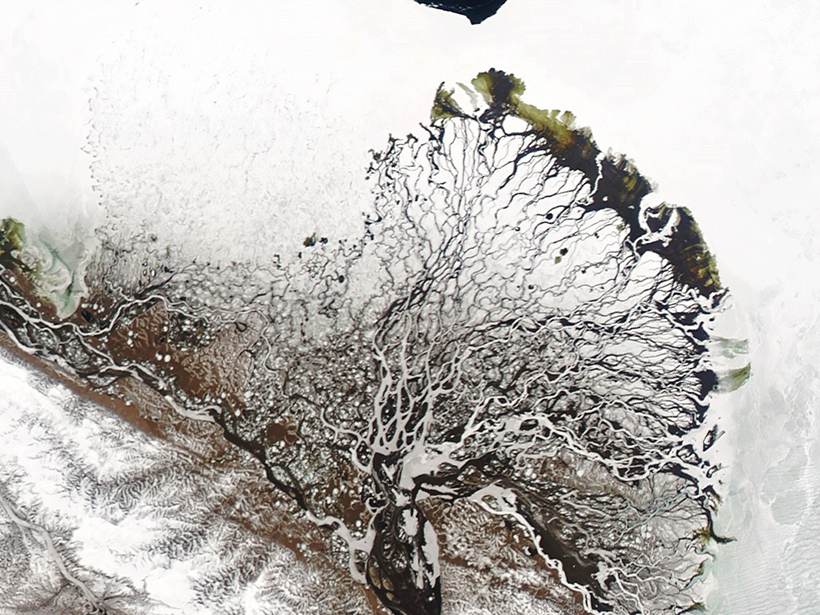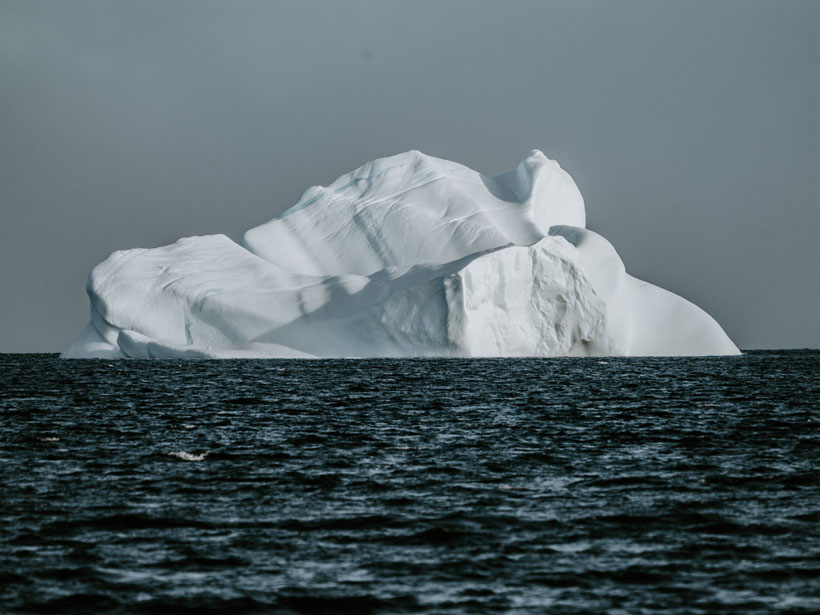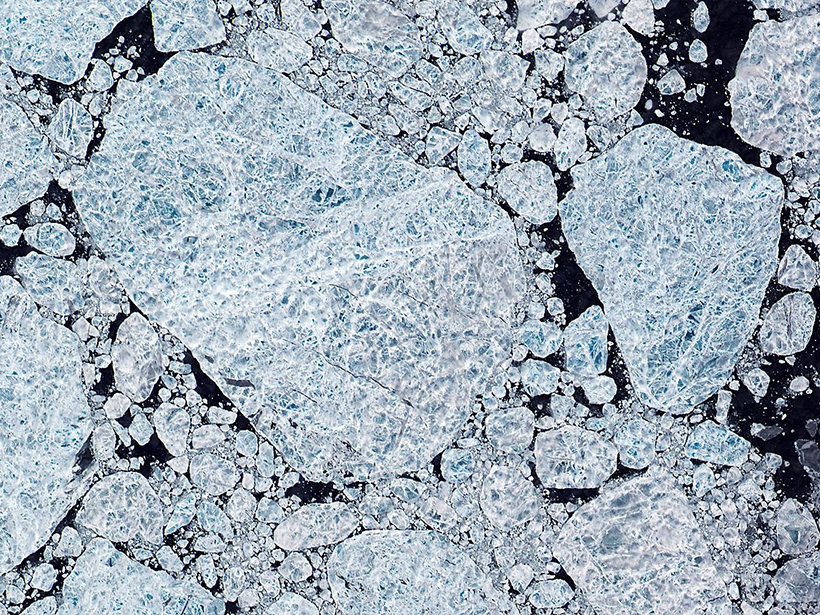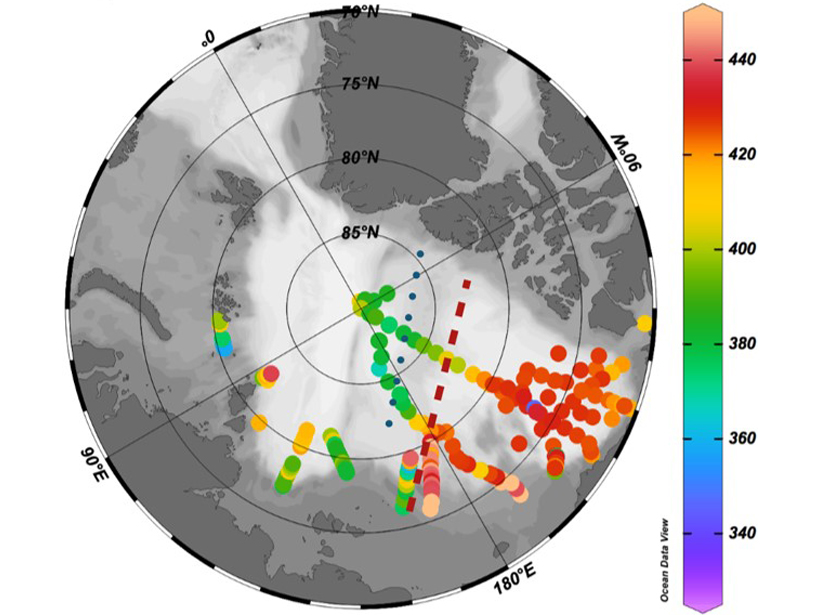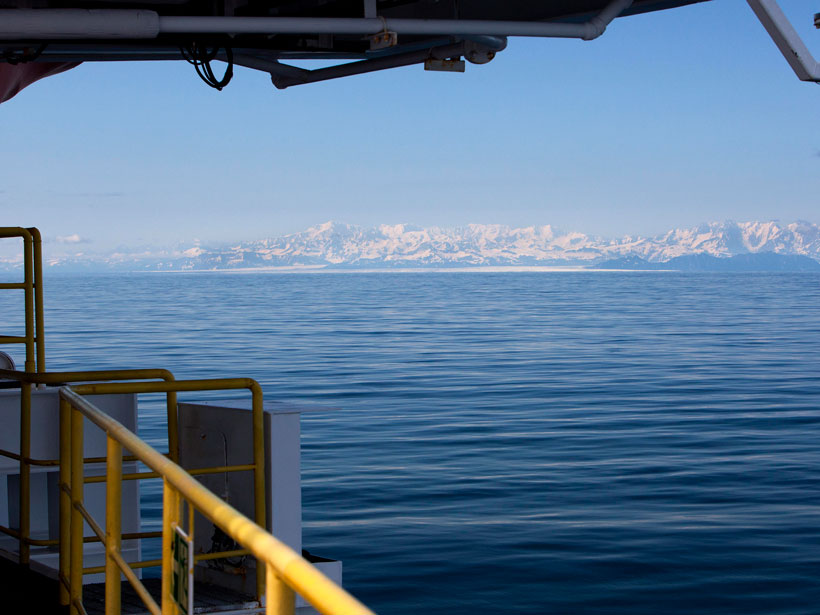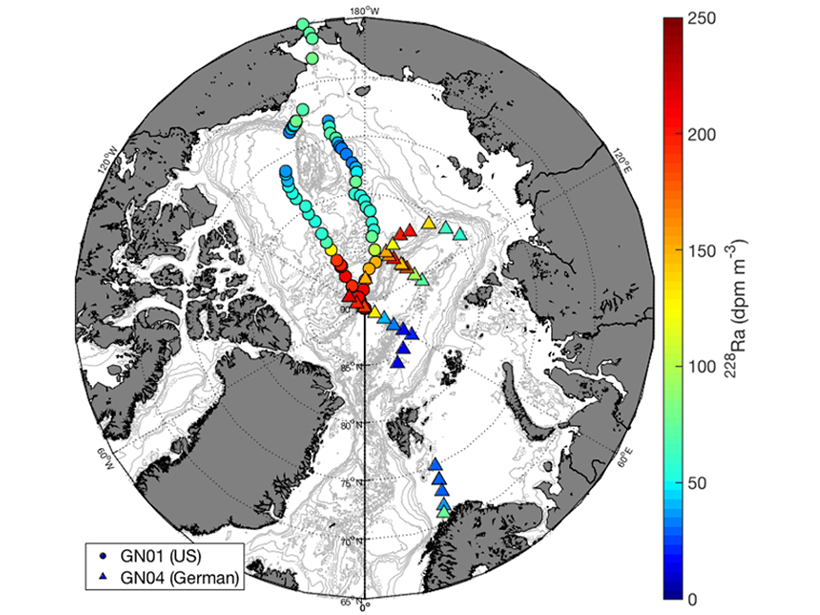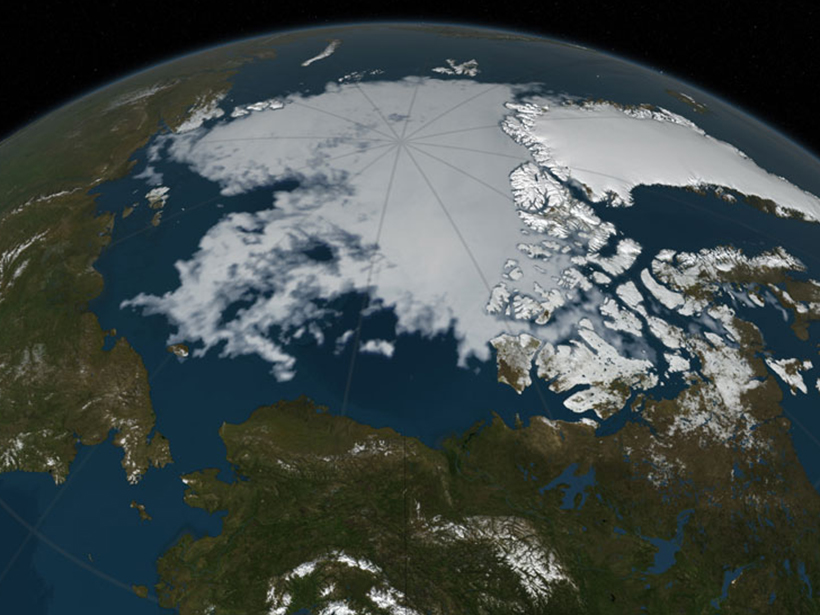The water that filters through river deltas has a large effect on the Arctic Ocean. A new study explores factors that shape Arctic river deltas and how delta form in turn changes water flow.
Arctic Ocean
Climate Change Is Intensifying Arctic Ocean Currents
Melting ice means that strong Arctic winds create more energetic currents in the Beaufort Gyre.
Addressing Arctic Challenges Requires a Synoptic Ocean Survey
A coordinated effort involving trailblazing science—and icebreaking ships—from many nations is needed to fill gaps in our understanding of the Arctic Ocean and how it’s changing.
Strong Winds Leave Arctic Regions on Thin Ice
A warming event in Siberia caused winds to strip sea ice from the Arctic’s Wandel Sea.
Distinguishing Pacific and Atlantic Contributions to the Arctic
A semi-conservative tracer combining nitrate and dissolved oxygen is more accurate than traditional tracers in distinguishing between Atlantic and Pacific water mass contributions to the Arctic.
The Ice Nurseries of the Arctic Are Melting
Ice formed in coastal nurseries along Russia’s Arctic coast is melting before it can float far offshore. Scientists are worried about what that means for wildlife.
The Future of Scientific Drilling in the North Pacific and Arctic
International Ocean Discovery Program Workshop; Mount Hood, Oregon, 25–27 September 2018
Increased Release Rates of Radium Isotopes on Arctic Shelves
A longer ice-free season on Arctic shelves causes an increase in sediment-water interaction.
Exploring a More Dynamic Arctic Icescape
A joint special issue presents new findings from a field campaign in the Arctic Ocean which highlights key processes that need to be taken into account to predict the future of the Arctic ice pack.
A Benchmark for Trace Greenhouse Gases in the Arctic Ocean
Samples of seawater from the North American Arctic show that the region is neither a major source nor sink of methane and nitrous oxide to the overlying atmosphere.

